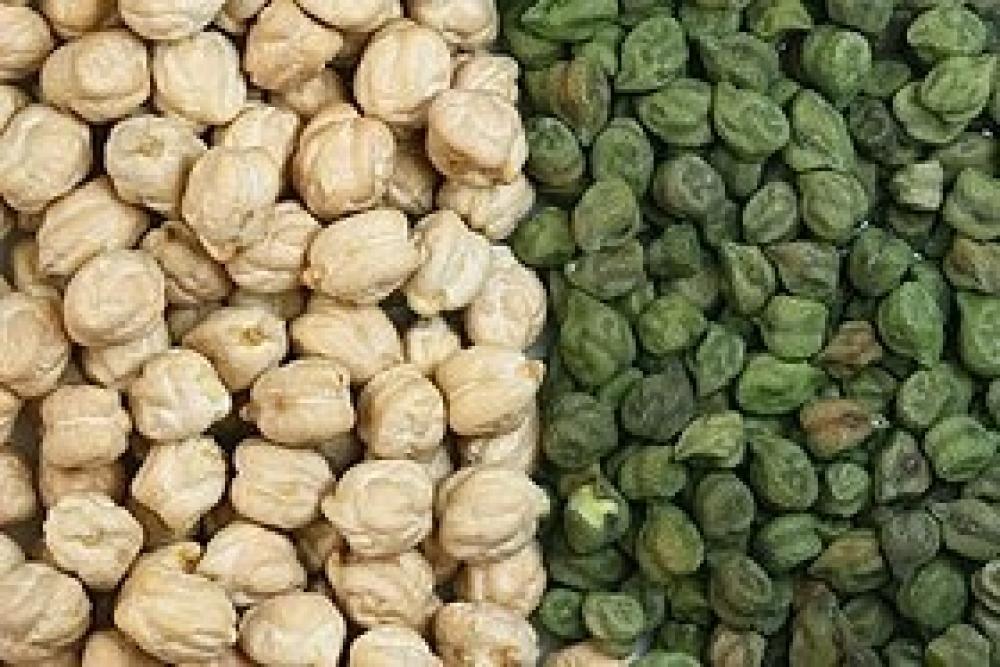
What are the types of whole grains?
What are the types of whole grains? In the world of healthy food and balanced nutrition, whole grains play a pivotal role in promoting general health and preventing many diseases. Whole grains are a rich source of fiber, vitamins and minerals that contribute to supporting the digestive system, improving energy levels and maintaining a healthy weight. With the variety of types of whole grains, it becomes easy to include them in the daily diet in multiple and innovative ways.
Types of whole grains
Whole grains are a rich source of essential nutrients that promote overall health and support a balanced diet. Here are some types of whole grains and their health benefits:
Whole wheat
Uses: It is one of the best types of whole grains, and is used in making bread, pasta, and cereals.
· Benefits: Rich in fiber, vitamins (such as vitamin B) and minerals (such as iron and magnesium), it helps improve digestion and maintain blood sugar levels.
Oats
Uses: It can be eaten as a breakfast cereal or added to baked goods and smoothies.
· Benefits: It contains beta-glucan, a type of soluble fiber that helps lower cholesterol levels and improve heart health.
brown rice
Uses: It is used as a healthy alternative to white rice in many dishes.
· Benefits: It contains more fiber and vitamins than white rice, supports digestive health and maintains energy levels.
barley
Uses: Barley can be added. To soups, stews and salads.
· Benefits: Rich in soluble fiber, it helps improve heart health and control blood sugar levels.
whole corn
Uses: It can be eaten as a breakfast cereal or used as corn flour in breads and pastries.
· Benefits: Contains antioxidants that support eye health, and provides fiber that promotes digestion.
buckwheat
Uses: Used in making crepes, pasta and cereals.
· Benefits: Gluten-free and rich in protein, fiber and minerals such as magnesium and copper.
Quinoa
Uses: Quinoa is used As a substitute for rice or couscous, it can be added to salads and side dishes.
· Benefits: It contains all the essential amino acids, which makes it a complete source of protein. It is rich in fiber and minerals such as iron and magnesium.
millet
Uses: It is one of the best types of whole grains, and is used in cereals, bread, and salads.
· Benefits: Rich in fiber and minerals such as magnesium and phosphorus, it supports heart and digestive health.
Benefits of whole grains
Whole grains offer many health benefits that promote overall health and help prevent disease. Here are some of the main benefits of whole grains:
Whole grains are high in fiber, which helps promote bowel movements and prevent constipation. Fiber also feeds the good bacteria in the gut, which promotes digestive health.
Whole grains help lower levels of bad cholesterol (LDL) and increase levels of good cholesterol (HDL). Soluble fiber found in grains such as oats helps reduce the risk of heart disease.
· The fiber in whole grains slows the absorption of sugar into the blood, which helps control blood sugar levels and reduces the risk of type 2 diabetes.
Whole grains are high in fiber, which helps you feel full longer, reducing food intake and helping you manage your weight better.
· Regular consumption of whole grains is associated with a reduced risk of many chronic diseases such as heart disease, diabetes, and some types of cancer, especially colon cancer.
The fiber in whole grains helps promote the growth of beneficial bacteria in the intestines, which improves overall digestive health and strengthens the immune system.
Whole grains are rich in vitamins and minerals such as vitamin B, iron, magnesium and zinc. These nutrients are essential for vital body processes and maintaining overall health.
· Whole grains provide steady, sustainable sources of energy due to their complex carbohydrate content, which keeps energy levels stable throughout the day.
Whole grains contain essential vitamins and minerals such as zinc and iron, which contribute to improving the health of the skin and hair and promoting their growth.
Nutrients found in whole grains such as vitamin B and magnesium contribute to improving brain function and enhancing concentration and memory.
What are whole grain products?
Whole grain products include a variety of foods that contain the whole grain, including the bran, germ, and endosperm. Here are some examples of whole grain products:
Wholemeal bread: Contains whole grain flour instead of refined white flour.
Brown rice: Unrefined rice that retains the husk and bran.
· Whole oats: Used for breakfast and can be prepared as porridge or added to baked goods.
Quinoa: A type of grain that is a good source of protein and fiber.
Bulgur: Bulgur It is a dried and partially cooked wheat grain, used in salads and other dishes.
· Whole wheat: It can be used in the form of flour or whole grains.
· Whole corn: Can be eaten as cooked corn or used in wholemeal flour.
· Seven Grains: A mixture of different types of whole grains.
Whole grains are considered healthy food choices that enhance the quality of the diet thanks to their rich content of fiber, vitamins and minerals. By increasing the consumption of whole grains such as brown rice, oats, quinoa and bulgur, you can improve your overall health, support the digestive process and prevent chronic diseases. Al-Hussein Perfumery Store is your ideal destination for obtaining high-quality whole grain products, as it provides you with a variety of these products that meet your nutritional needs and help you achieve a healthy lifestyle.

